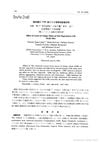Search
for🛒 Where to find Ginkgo biloba
Tracking by companies like Farmacia Tristaina / Andorra. View product »Learn
1 / 1 resultsResearch
5 / 282 resultsresearch The Potential of Ginkgo Biloba as a Source of Biologically Active Compounds: A Review of the Recent Literature and Patents
Ginkgo biloba has health benefits but also contains toxic compounds, driving interest in its use in medicine and food.

research Effect of Leaves of Ginkgo Biloba on Hair Regrowth in C3H Strain Mice
Ginkgo biloba leaf extract may help hair regrowth and improve heart health.
research Ginkgolide B and Bilobalide Promote Growth and Increase β-Catenin Expression in Hair Follicle Dermal Papilla Cells of American Minks
Ginkgolide B and bilobalide help mink hair grow by making skin cells healthier and boosting a key growth protein.

research Hair-Growth Promoting Effect and Anti-Inflammatory Mechanism of Ginkgo Biloba Polysaccharides
Ginkgo biloba polysaccharides may reduce inflammation and promote hair growth in mice with hair loss.
research Analysis of Genetic Diversity and Construction of a Core Collection of Ginkgo Biloba Germplasm Using EST-SSR Markers
Ginkgo biloba has high genetic diversity, useful for future breeding.
Community Join
5 / 42 resultscommunity Is it Ritalin? (23 F)
A user suspects Ritalin is causing hair loss due to vasoconstriction and is considering trying Ginkgo Biloba after already taking a multivitamin and hair supplement. Another user mentions experiencing hair shedding with Vyvanse and Dexedrine.
community Dutasteride and elevated (LDL) cholesterol
The user switched from finasteride to dutasteride for hair loss and noticed elevated cholesterol levels, questioning if dutasteride caused this change. They also take Vitamin D, biotin, magnesium, ginkgo biloba, omega-3, and NAC, and are concerned about the impact of these supplements and their health on cholesterol levels.
community Is anyone on topical NMN 1% here?
A user added 1% NMN to their 5% minoxidil mix for hair loss, which also includes melatonin, ginkgo, nettle root, and plans to add caffeine. They are asking if anyone has tried topical NMN for hair growth.
community Exploring Bryan Johnson's Hair Routine In Detail
Bryan Johnson uses a custom hair loss treatment that includes topical finasteride, minoxidil, azelaic acid, diclofenac, tea tree oil, rosemary oil, ginkgo biloba, biotin, and melatonin, which have shown varying degrees of effectiveness with minimal side effects. He also undergoes PRP and laser therapy, and has tried dutasteride mesotherapy.
community To people who have tried lowering / suppressing Fin sides with supplements
A user seeks advice on supplements to counteract libido and erection issues while taking Finasteride. Suggested supplements include Zinc, Maca, L-Arginine, L-Citrulline, Ginseng, Ginkgo, Ashwagandha, and Boron.